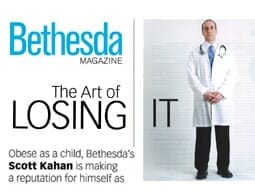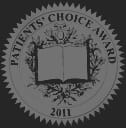A patient of mine recently alerted me to this exciting NY Times article that describes the admission process of Virginia Tech‘s medical school. Rather than the traditional interview questions about test scores and grades, this process is more like “speed dating,” in which candidates are randomly exposed to 8 standardized patients (actors) who each present a difficult clinical/ethical situation. Applicants are assessed based on their ability to productively and humanely interact with the “patients.”
I’ve long argued that the traditional process of choosing medical students selects for the wrong type of doctors-to-be; it prizes how you look on paper rather who you are, scores above substance.
This formula leads to lots of really smart doctors with good credentials but poor people skills. It leads to medical consultants, not healers, not partners in care.
This is particularly important when it comes to obesity and chronic diseases. In the past, the most common health problems, such as tuberculosis and other infectious diseases, were acute in nature. Doctors learned to treat these, even cure them, with hi-tech “magic bullets” (eg, antibiotics, vaccines). Being really smart and possessing an encyclopedic knowledge of medical options, in order to determine and prescribe the right cure, was perhaps of utmost importance for doctors back then.
And if I had a severe, acute disease, I’d want the smartest, most effective doctor possible, regardless of his personality or people skills.
But the majority of today’s diseases, disabilities, deaths, and healthcare costs are attributable to chronic, often behavior-related diseases. These things are rarely cured, no matter how good the physician. Rather, they must be managed, often for life, which is best accomplished by a strategic, empathic partnership between doctor and patient (in addition to other means, both inside and outside the healthcare system).
To be successful at treating today’s common health problems, doctors must be part-clinician, part-psychologist, part-“coach.” They must be able to productively communicate with patients on a human level. In short, they must be “healers,” not computers – people smart, not book smart.
All of which is to say that we have been selecting the wrong type of doctors for our current healthcare environment. And then we’re doing little to train them to communicate effectively with patients, understand the nuances of behavior and behavior-related health problems, and help their patients achieve and sustain health. Which leads to what I typically hear from my patients: their physicians often treat them with little respect – just because of how they look; they bark orders at patients, rather than work with them; they even call them names. It’s well documented.
I’m hopeful that Virginia Tech and a few other medical schools following the same progressive admission processes are the future of medical training. To be sure, it won’t guarantee perfect doctors – but may produce a lot of human ones.









